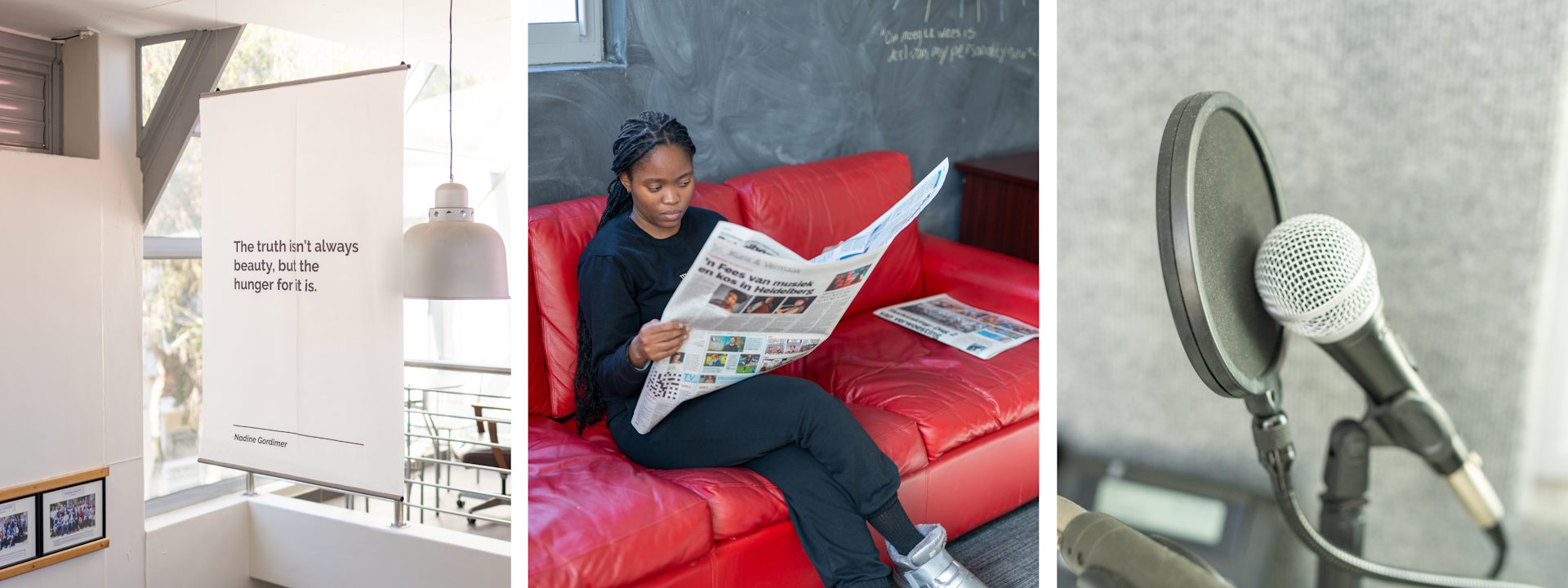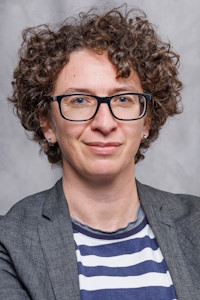
BAHons Journalism
Following any undergraduate degree as a fourth-year level course specialising in Journalism Practice
The BAHons Journalism programme has historically been the flagship programme of the Department of Journalism at Stellenbosch University. The programme is a starting point for students seeking to have careers in the field of journalism and broader mediawork.
Applications close on 31 August and applications have to write an entrance test (evaluating writing ability and general and contextual knowledge) in September.
Programme Coordinator
Programme details
Application requirements
Students who wish to apply for admission to Journalism honours programme must either have a bachelor degree or be in their final year of study for such a degree. Applicants can be from any undergraduate degree (not just BA). After a strict selection process, around 25 students are admitted to the course each year.
Entrance test and interview
All applicants must write an entrance test early in September to assess their general knowledge, language skills, interests and cultural literacy. An individual interview will also be conducted with applicants who achieve a sub-minimum in the test. Keep an eye on our social media channels and website for the exact date of the test each year.
Duration of the course
The course usually commences around the /first week of February. Final projects are submitted by the end of November. Hereafter, students still need to complete an internship of at least four weeks at an approved media-related institution before graduating in March of the next year.
Course structure
Students should prepare themselves to dedicate most of their time to the course during their year of study. There are classes and workshops every day during the week, as well as regular assignments, reporting trips and compulsory attendance of various events and activities in town (including over weekends). A large part of the learning experience centres on the work published on the student-run digital publication, SMFNews.
Plagiarism
Plagiarism is regarded in a very serious light in journalism and in the training provided by the Department of Journalism. More information on what plagiarism is and how to avoid it can be found at this link on the Library’s website. Students that commit plagiarism in any assignment will receive zero for an assignment, as well as a final written warning by the department. Repeat offenders will be referred to the Central Disciplinary Committee of the University.
Course content
The course consists of six modules. Each of these modules forms an integral part of the training and guidance of aspiring media professionals for the digital age.
Module 1: Journalism Practice (30 credits)
This module provides the foundation for writing and editing for print, online and social media platforms. To successfully complete this module, students also have to complete a four-week-long internship at a recognised media institution.
Module 2: Multiplatform Journalism (15 credits)
This module complements the Journalism Practice module by guiding the students in designing content for various platforms: print, online, social media, radio, podcasts and video.
Module 3: Media Studies (20 credits)
Critical thinking and engagement with the role of the media in society is key to a well-rounded university education in Journalism. This module provides students with a background in media ethics and the context the media have to provide in order to contribute to a well-informed society.
Module 4: Media Entrepreneurship (10 credits)
This module will equip students with the essential skills to enable them to think about a career beyond traditional mainstream media.
Module 5: Specialist Journalism (15 credits)
Another highlight of this course is the involvement of working industry professionals to share their knowledge and experience with the students. Specialists present courses in subject areas such as Science and Technology, Business, Arts, Politics and Lifestyle.
Module 6: Research assignment (30 credits)
This module serves to test the whole range of skills the students acquire throughout the year. The assignment requires an industry-standard media product in the form of a series of articles, video, audio or digital publications.
Application deadline
Applications close on 31 August and an entrance test is written in September every year. Keep an eye on our social media and website for the specific test date. Acceptance into the programme is dependent on meeting the minimum requirements and passing the entrance test.



